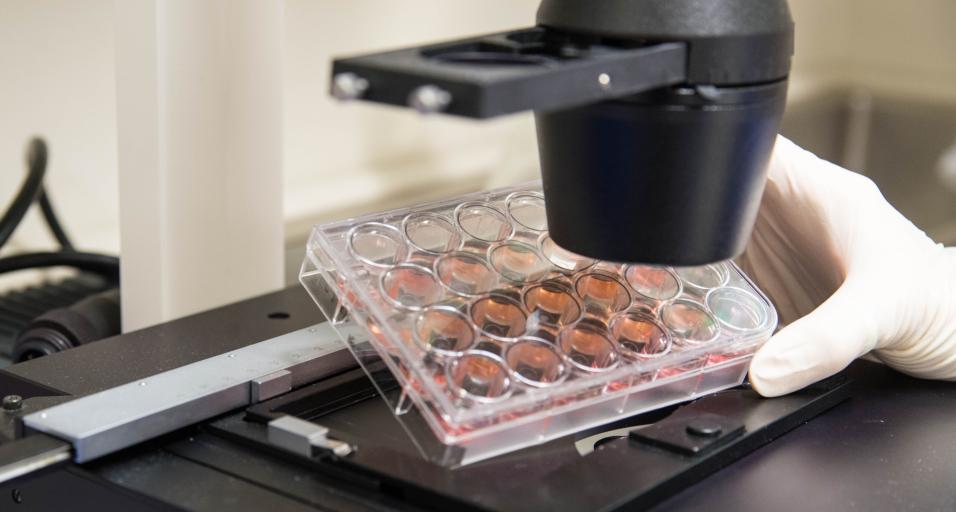Fish, like many other animals in Wyoming, are monitored closely to be sure they are healthy. The health of a fish is not only important for the anglers who like to eat the fish they catch, but also for the health of the fisheries.
The Wyoming Game and Fish Department Fish Health Laboratory, located in Laramie, Wyoming is a lab that focuses on helping maintain the health of fisheries and hatcheries statewide.
“Our goal at the lab is to monitor or enhance fish health throughout Wyoming,” said Brandon Taro, fish health program manager.
The Game and Fish Lab annually inspects the 10 state hatcheries, six commercial facilities, four isolation facilities, and six feral brood populations in Wyoming. During these inspections, Taro and his colleagues take samples to certify that the fish are healthy, and if any health problems are found, research the cause and report their findings to the Fish Division. The hatcheries operated by Game and Fish are used to grow and eventually stock fish in fisheries across the state. So, maintaining a healthy population is important for the fish that eventually could end up on an angler’s line.
Hatcheries employ highly-meticulous systems to essentially eliminate disease threats from outside sources. Protocols are in place to maintain a clean and healthy rearing environment for the fish from the time they are received as eggs until they are scheduled to be stocked. Hatchery personnel constantly monitor fish health and work closely with the laboratory if any problems arise. Thankfully Wyoming has few issues with viruses or bacteria infections seen in other states since the Department receives fish eggs from its own brood stocks and have benefited from a long history of a fish health program by the Fish Health Laboratory since the 1960’s. In fact Wyoming hatcheries have never had any viral infection which have plagued the Northwest and some neighboring states.
Wild populations, or the fish living in the rivers and lakes in Wyoming, are also tested when there are die offs or if sick fish are collected by Game and Fish or the public. The lab will look for common pathogens or symptoms caused by chemical or environmental issues. Biologist also consider environmental conditions that can also cause problems include gas supersaturation, nephrocalcinosis (calcium deposits in the kidneys), and mechanical gill disease caused by iron deposits in gill tissue. During the last year, detailed investigations conducted by the lab indicated the cause of some fish losses in free-ranging Wyoming fish were due to environmental toxicity problems, parasites and drought.
When you are out on the river or lake, you can also tell if a fish you catch is healthy, and then, healthy enough to eat.
“Fish caught in the wild in Wyoming are generally safe to eat, and very few fish diseases are transferrable to humans,” said Taro. “Our job is to help make certain the fish you catch and eat are healthy.”
You can tell a lot about a fish’s health by looking at it. A simple way is to look at it’s gills. They should be red, if they are pale, clumped, or covered with debris or mucus the fish may not be healthy. Also, if the fish is shaped atypically, it might not be healthy. A fish should be shaped, for the most part, like a football.
If you decide to keep a fish, you can also learn about it’s health when you gut it. If you find any worms inside or if the liver if pale or spotted, the fish may not be healthy. These may not be fish you want to eat.
“If you catch a fish that doesn’t look healthy or has worms, you can save it and bring it to any of our regional offices,” said Taro. “It helps us know more about what’s out there affecting the fish.” Taro recommends trying to keep the fish cool to help prevent bacteria from spreading, which makes testing the fish for diseases difficult.
The Game and Fish, in cooperation with the Wyoming Department of Health, also provides recommendations on including fish as part of a healthy diet.
What makes a healthy fish? - News from the Fish Health Laboratory
Wyoming Game and Fish (307) 777-4600

